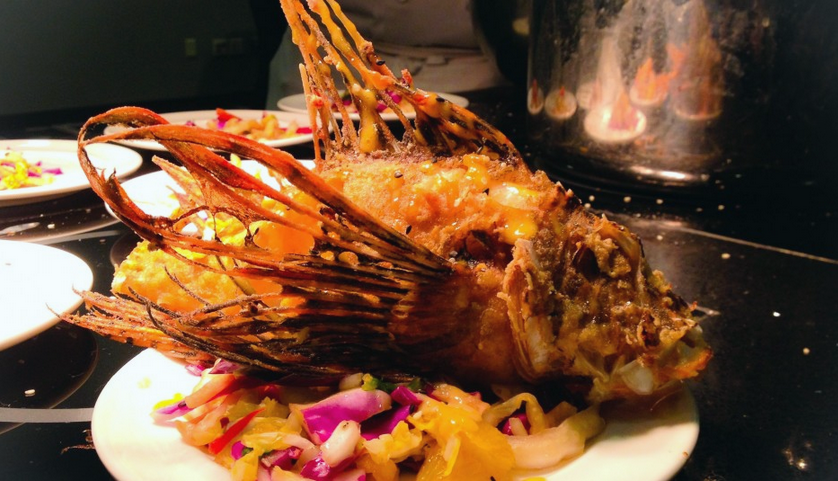New Orleans, LA – Lionfish are malicious, and delicious.
For most species of eatable fish, overconsumption is a threat to survival. In the case of lionfish, overconsumption may be the road to redemption.
 Speckled and striped beauties with flowing fins pinned up by venomous spines, Lionfish are native to Southeast Asia. They were introduced to the Atlantic through the aquarium trade. Without their native predators, competition and diseases, lionfish took a mere three years to invade and install themselves on southeast coast of the U.S., the Gulf of Mexico and the Caribbean.
Speckled and striped beauties with flowing fins pinned up by venomous spines, Lionfish are native to Southeast Asia. They were introduced to the Atlantic through the aquarium trade. Without their native predators, competition and diseases, lionfish took a mere three years to invade and install themselves on southeast coast of the U.S., the Gulf of Mexico and the Caribbean.
Lionfish are aggressive predators and prolific reproducers: a female can lay eggs every four days and lives for 30 years. When lionfish move in, they quickly displace and deplete millions of native reef fish.
The invaders break hearts on land as well as at sea, by taking over the habitat of economically important native fish like grouper and snapper. That adversely impacts fishing businesses and ecological balance.
Lionfish have one fatal flaw: their taste. In the battleground state of Louisiana, humans exploited that flaw to exact delicious revenge. At the SeaWeb Seafood Summit underway here, eight celebrity chefs were invited to debut new recipes featuring lionfish. The chefs are collaborating to introduce a new fish to market, drive demand, and eat an invasive species into oblivion. Recipes on offer included a succotash, olive polenta and trumpet mushroom noodles.
The firm, white fish comparable to sole and cheap enough to beat tilapia. Catching and processing lionfish is more challenging than native species because of extra precautions for avoiding contact with the venomous spines. Filets are on the small side of American standards.
NOAA, the National Oceanic and Atmospheric Administration sponsored the Celebrity Chef event and has launched an invasive lionfish web portal.
The chefs said the taste is easy to work with, as the wide range of flavor parings demonstrated. If diners agree, these chefs can help Americans to put their skill at depleting fishery stocks to good use.











